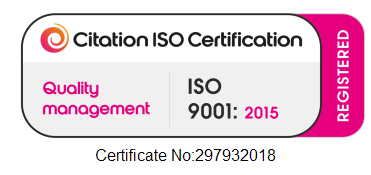

15 Dec 2015
Autumn Statement Marks Acceleration
In common with most of the industry, we talked a lot about the subject of whiplash in the run up to this year’s reforms. And, as recently as this Summer, we reported on news that claims for the soft- tissue injuries had fallen by almost 200,000 over the last five years and that in the last 12 months alone, covering the period of the introduction of stricter regimes for those seeking compensation in the wake of an accident, claims had fallen by a further 8%.
You may remember, at the time, we quoted Jonathan Wheeler, president of the Association of Personal Injury Lawyers, who stated that people could be ‘forgiven for wondering’ why insurers such as Aviva and the AA had been warning the public their car insurance premiums were set to increase due the cost of rising personal injury claims.
So we were interested to hear George Osborne, Chancellor of the Exchequer, use November’s Autumn Statement to declare “We’re going to bring forward reforms to the compensation culture around minor motor accident injuries” in an acceleration of the changes already underway. In a bid to remove more than £1bn from the cost of providing motor insurance to the public – a saving the Chancellor made clear he expects to be passed on in the form of lower premiums – more personal injury cases will go through the small claims court where the upper limit for claims will be increased fivefold, potentially eliminating lawyers’ fees. But do we really have a problem with whiplash? Sure, on statistics alone, before the recent declines, the number of motorists making claims for whiplash had soared, consequently meaning a rise in fraudulent claims – so much so that in insurance circles the UK became known as the ‘whiplash capital of Europe’. But that ignores fundamental contributory factors such as the growing number of people on our busier roads and the increasing costs of medical treatment.
Everyone, even the insurance industry, agrees that whiplash can potentially be a debilitating injury causing pain, tenderness, stiffness and loss of movement in the neck. And everyone agrees that fraudulent claims need to be spotted earlier and stamped out more vigorously than ever before (which, in the main, they are) but more than a few claimants and their legal representatives will have been disheartened by the Treasury when it said that the average amount being paid per policy was “out of all proportion to any genuine injury suffered”, and that there will be a crackdown on exaggerated claims, “ending the right to cash compensation”.
According to the Association of British Insurers (ABI), eight in 10 personal injury claims following road traffic accidents are now for whiplash, and, according to the UK’s largest insurer Aviva, the number of injury claims this year is expected to rise again to top 840,000. That’s a lot. But with medical reporting around the issue having been overhauled, the sharing of fraud data improved meaning fewer non-genuine claims are progressed, and solicitors’ fees for such cases having been greatly reduced, what else can the industry do? Even the Government’s own figures show whiplash claims have fallen by more than a third in the past four years.
Yet still insurance premiums have increased. Let’s hope that the ABI’s director general Huw Evans is right when he says that this rallying call by the Government “is a significant breakthrough”, and that it will “mean that savings can be passed on to customers through lower insurance premiums for motorists.” But let’s also hope that APIL President Jonathan Wheeler is heard when he says: “Removing the right to damages for pain and suffering would show a callous indifference to the suffering of people who were needlessly injured by the negligence of others.”






